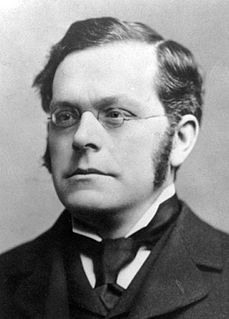A Quote by Timothy Garton Ash
The first job of the historian and of the journalist is to find facts. Not the only job, perhaps not the most important, but the first. Facts are the cobblestones from which we build roads of analysis, mosaic tiles that we fit together to compose pictures of past and present. There will be disagreement about where the road leads and what reality or truth is revealed by the mosaic picture. The facts themselves must be checked against all the available evidence. But some are round and hard--and the most powerful leaders in the world can trip over them. So can writers, dissidents and saints.
Quote Topics
About
Against
Analysis
Available
Build
Checked
Compose
Disagreement
Dissidents
Evidence
Facts
Find
First
First Job
Fit
Hard
Historian
Important
Job
Journalist
Leaders
Leads
Mosaic
Most
Most Powerful
Must
Only
Over
Past
Past And Present
Perhaps
Picture
Pictures
Powerful
Powerful Leaders
Present
Reality
Revealed
Road
Roads
Round
Saints
Some
The Most Important
Them
Themselves
Tiles
Together
Trip
Truth
Truth Is
Which
Will
World
Writers
Related Quotes
I think it's my job or the artist's job, to try and find some solution or some reason to accept things. But given the grimmest reality, I feel the grimmest facts are the real facts, the true facts: that you're born, you die, you suffer, it's to no purpose, and you're gone forever, ever, ever, and that's it.
The past is of no importance. The present is of no importance. It is with the future that we have to deal. For the past is what man should not have been. The present is what man ought not to be. The future is what artists are.
The facts: nothing matters but the facts: worship of the facts leads to everything, to happiness first of all and then to wealth.
Many, and I think the determining, constitutive facts remain outside the reach of the operational concept. And by virtue of this limitation this methodological injunction against transitive concepts which might show the facts in their true light and call them by their true name the descriptive analysis of the facts blocks the apprehension of facts and becomes an element of the ideology that sustains the facts. Proclaiming the existing social reality as its own norm, this sociology fortifies in the individuals the "faithless faith" in the reality whose victims they are.
Truths emerge from facts, but they dip forward into facts again and add to them; which facts again create or reveal new truth (the word is indifferent) and so on indefinitely. The 'facts' themselves meanwhile are not true. They simply are. Truth is the function of the beliefs that start and terminate among them.
[The scientist] believes passionately in facts, in measured facts. He believes there are no bad facts, that all facts are good facts, though they may be facts about bad things, and his intellectual satisfaction can come only from the acquisition of accurately known facts, from their organization into a body of knowledge, in which the inter-relationship of the measured facts is the dominant consideration.
The true historian, therefore, seeking to compose a true picture of the thing acted, must collect facts and combine facts. Methods will differ, styles will differ. Nobody ever does anything like anybody else; but the end in view is generally the same, and the historian's end is truthful narration. Maxims he will have, if he is wise, never a one; and as for a moral, if he tell his story well, it will need none; if he tell it ill, it will deserve none.
All good intellects have repeated, since Bacon's time, that there can be no real knowledge but that which is based on observed facts. This is incontestable, in our present advanced stage; but, if we look back to the primitive stage of human knowledge, we shall see that it must have been otherwise then. If it is true that every theory must be based upon observed facts; it is equally true that facts can not be observed without the guidance of some theory. Without such guidance, our facts would be desultory and fruitless; we could not retain them: for the most part we could not even perceive them.
In the field one has to face a chaos of facts, some of which are so small that they seem insignificant; others loom so large that they are hard to encompass with one synthetic glance. But in this crude form they are not scientific facts at all; they are absolutely elusive, and can be fixed only by interpretation, by seeing them sub specie aeternitatis, by grasping what is essential in them and fixing this. Only laws and generalizations are scientific facts, and field work consists only and exclusively in the interpretation of the chaotic social reality, in subordinating it to general rules.
Facts are neutral until human beings add their own meaning to those facts. People make their decisions based on what the facts mean to them, not on the facts themselves. The meaning they add to facts depends on their current story … facts are not terribly useful to influencing others. People don’t need new facts—they need a new story.

































